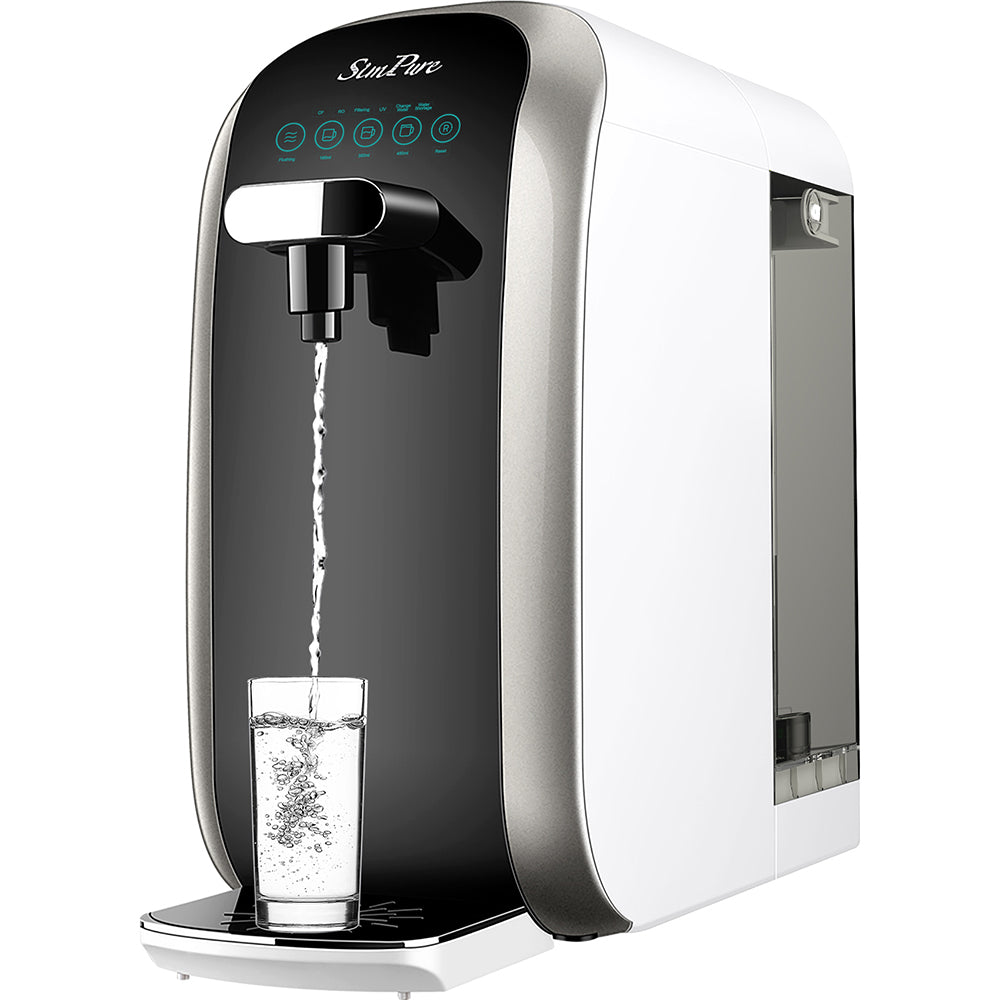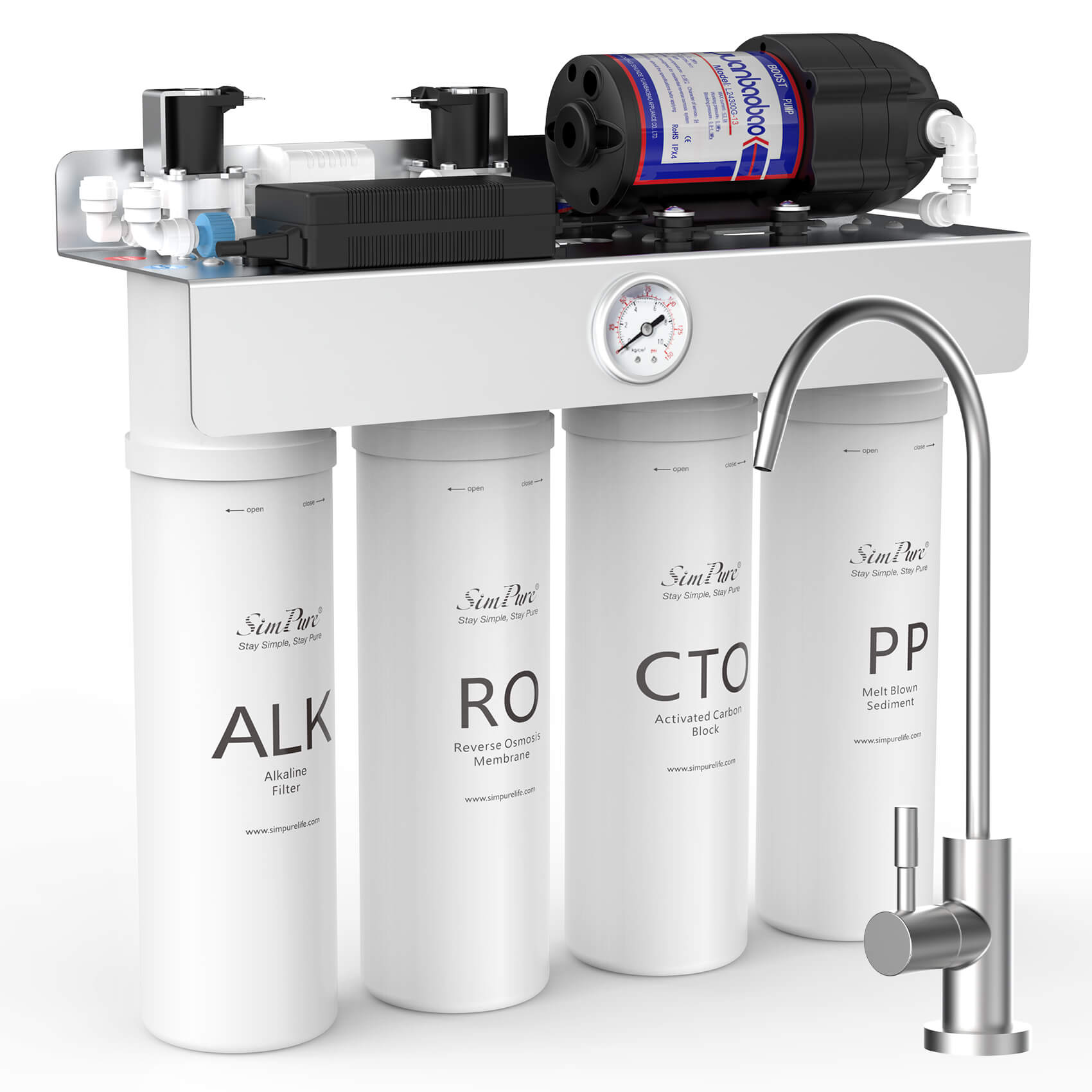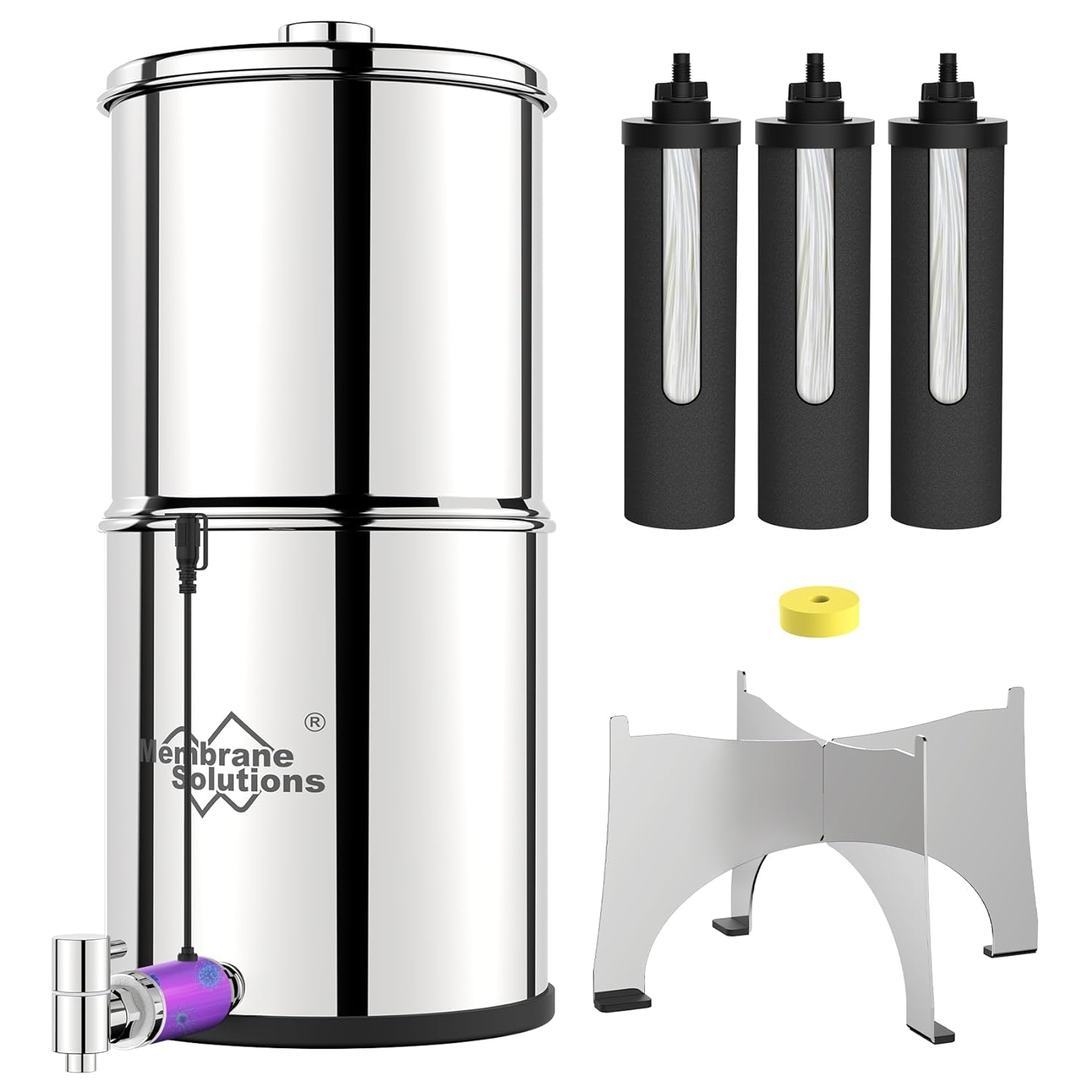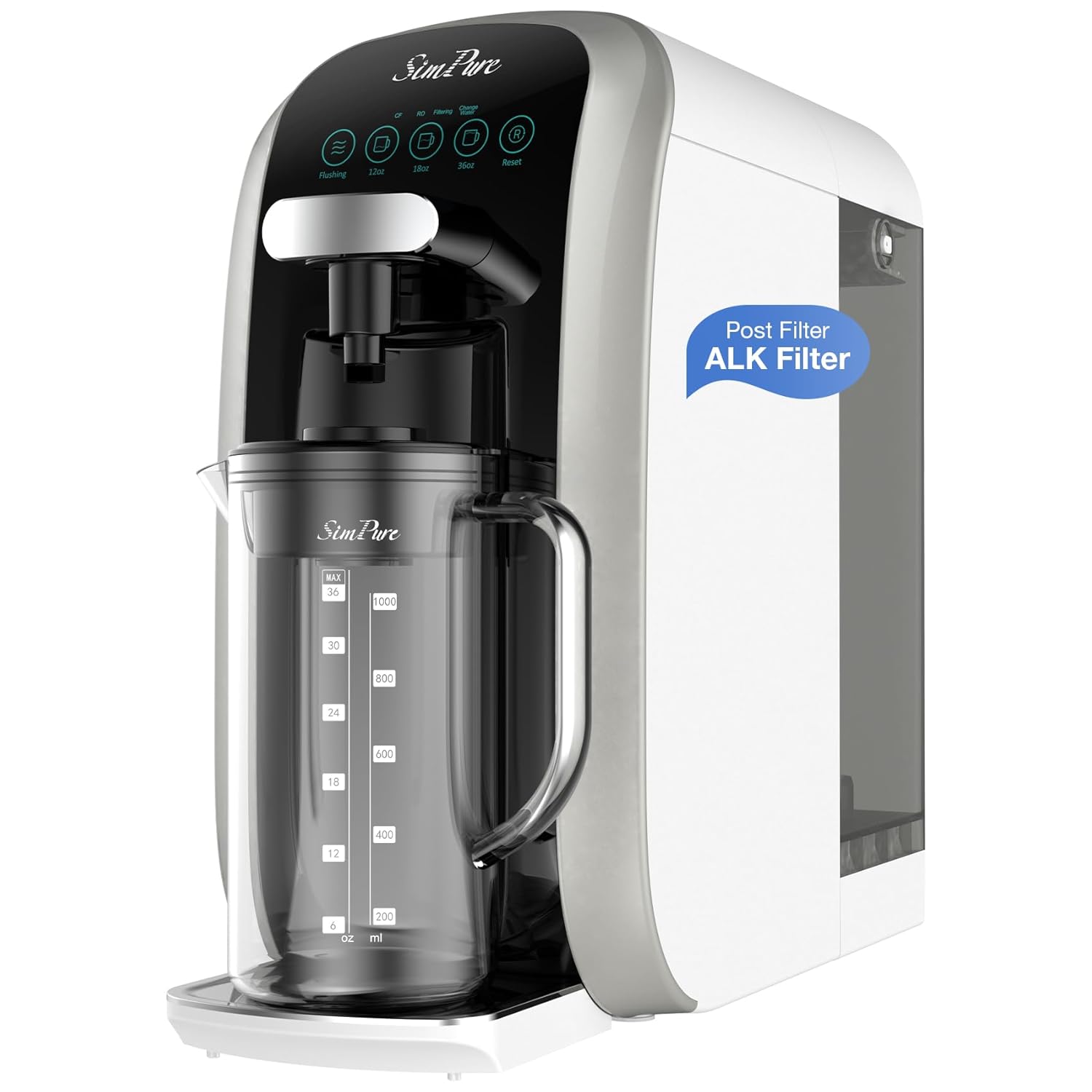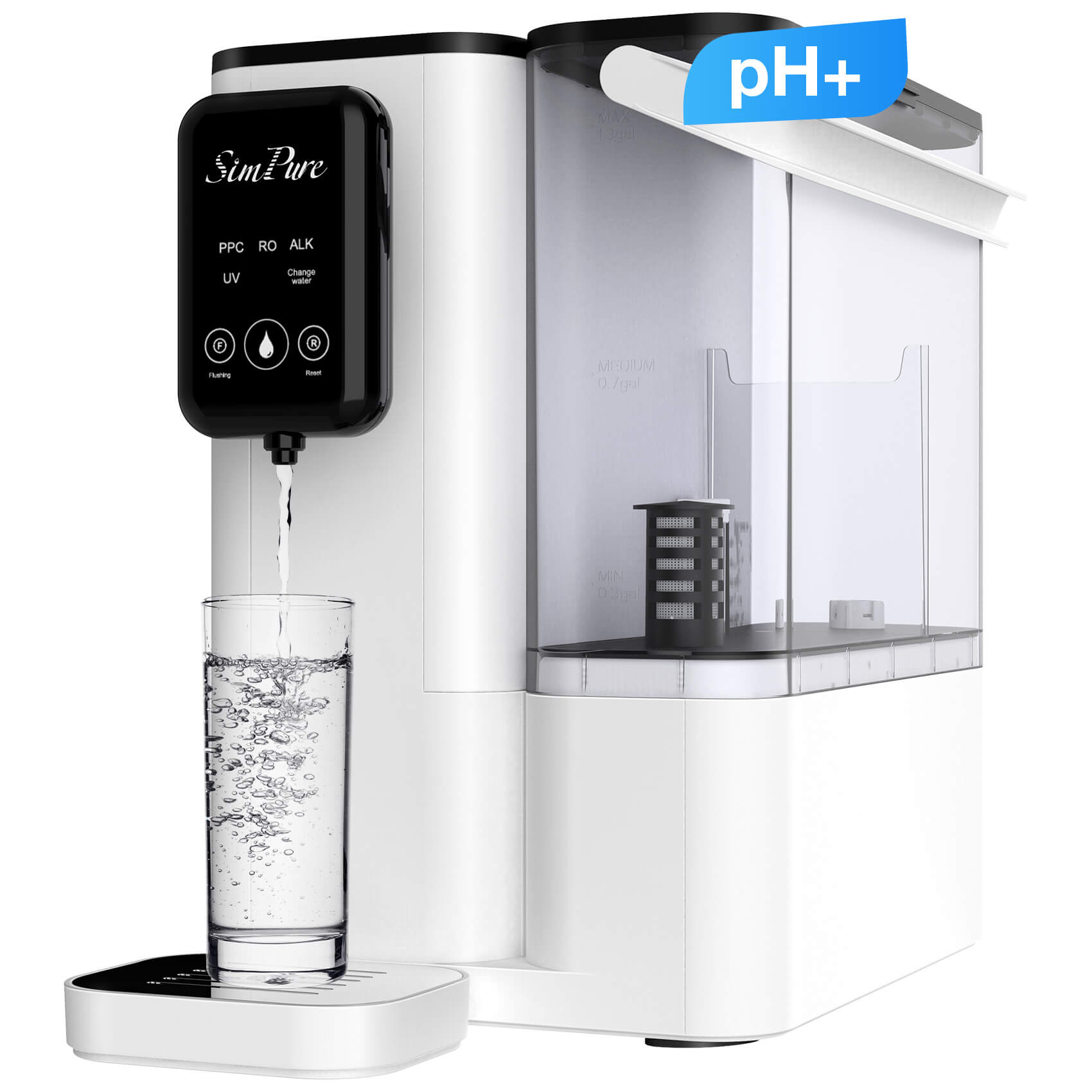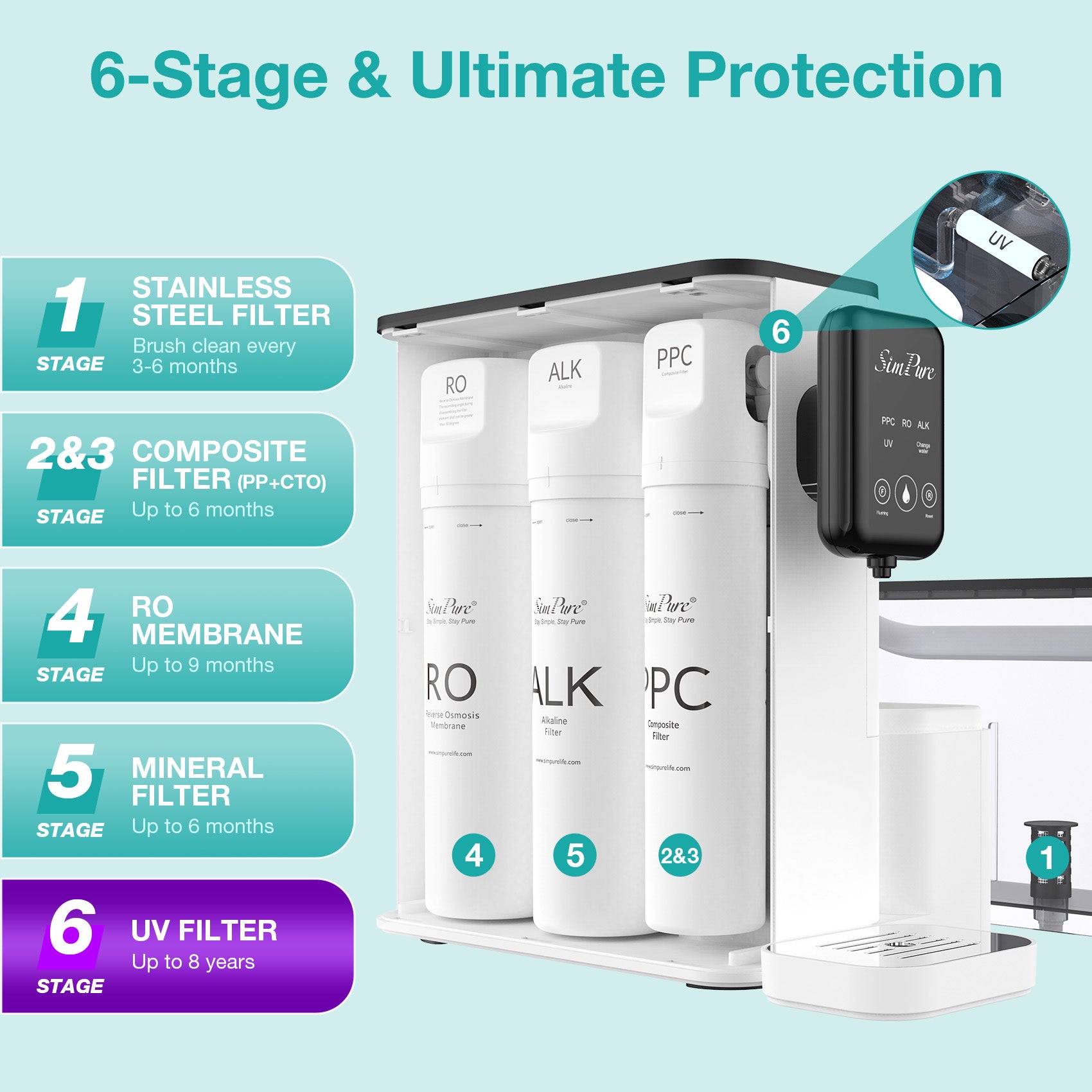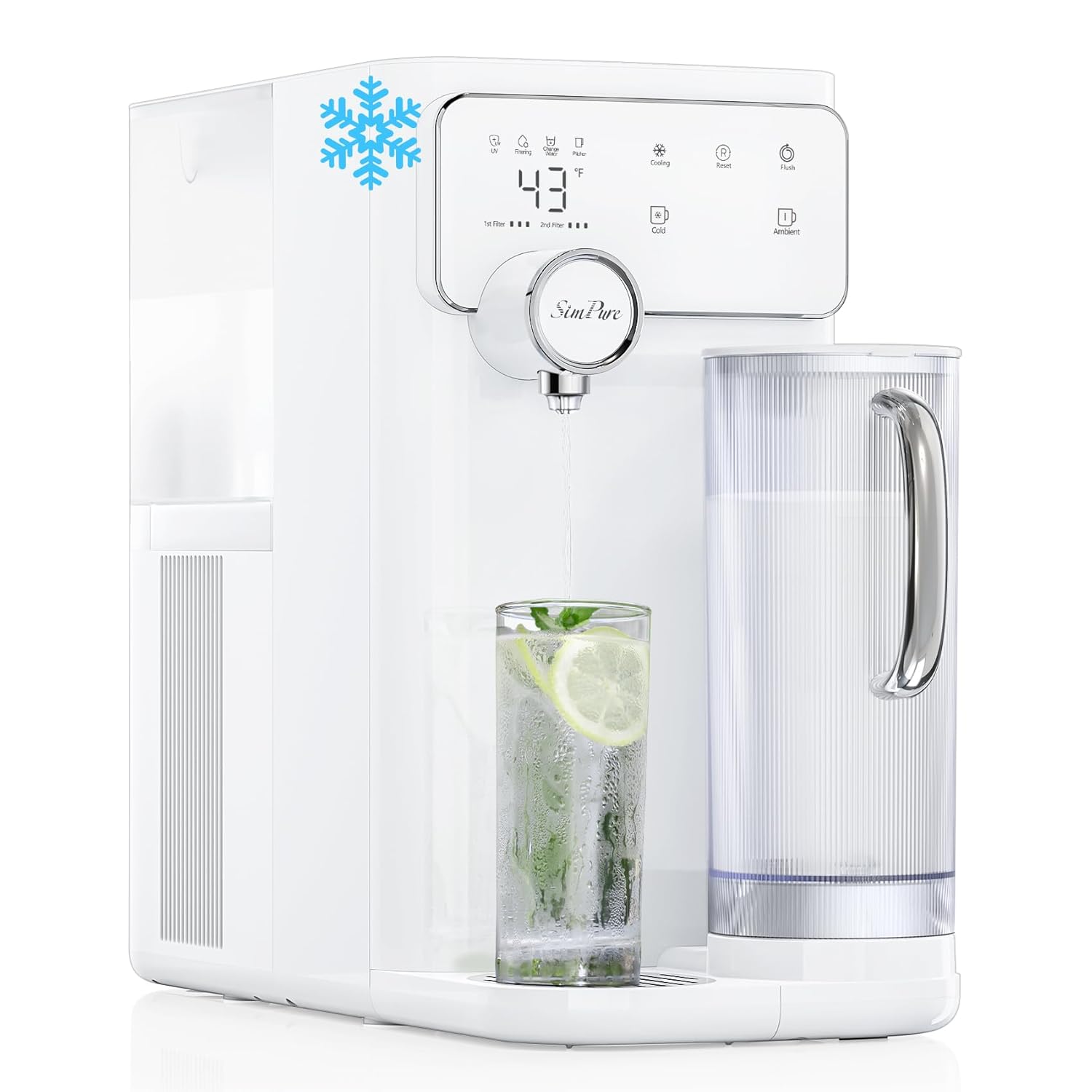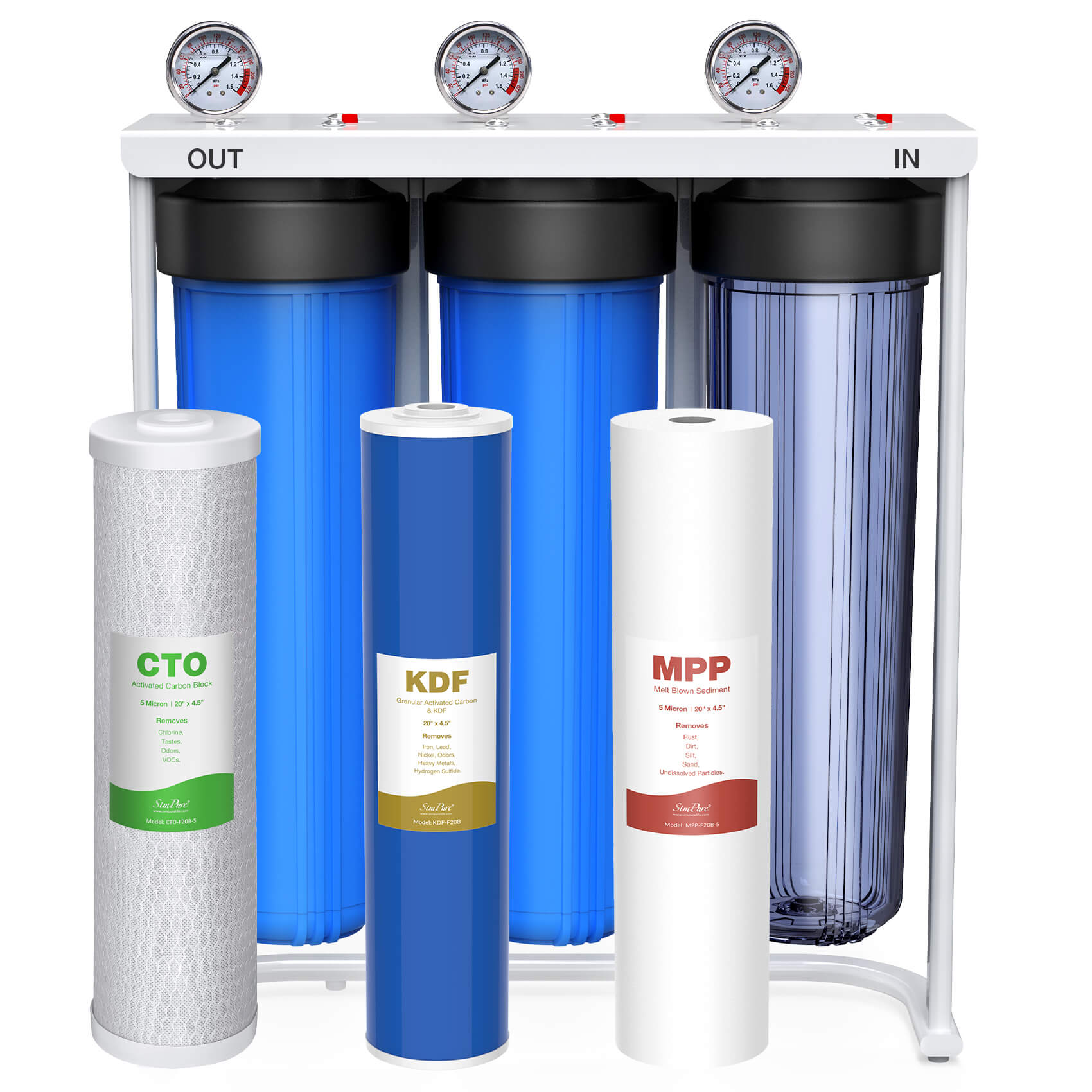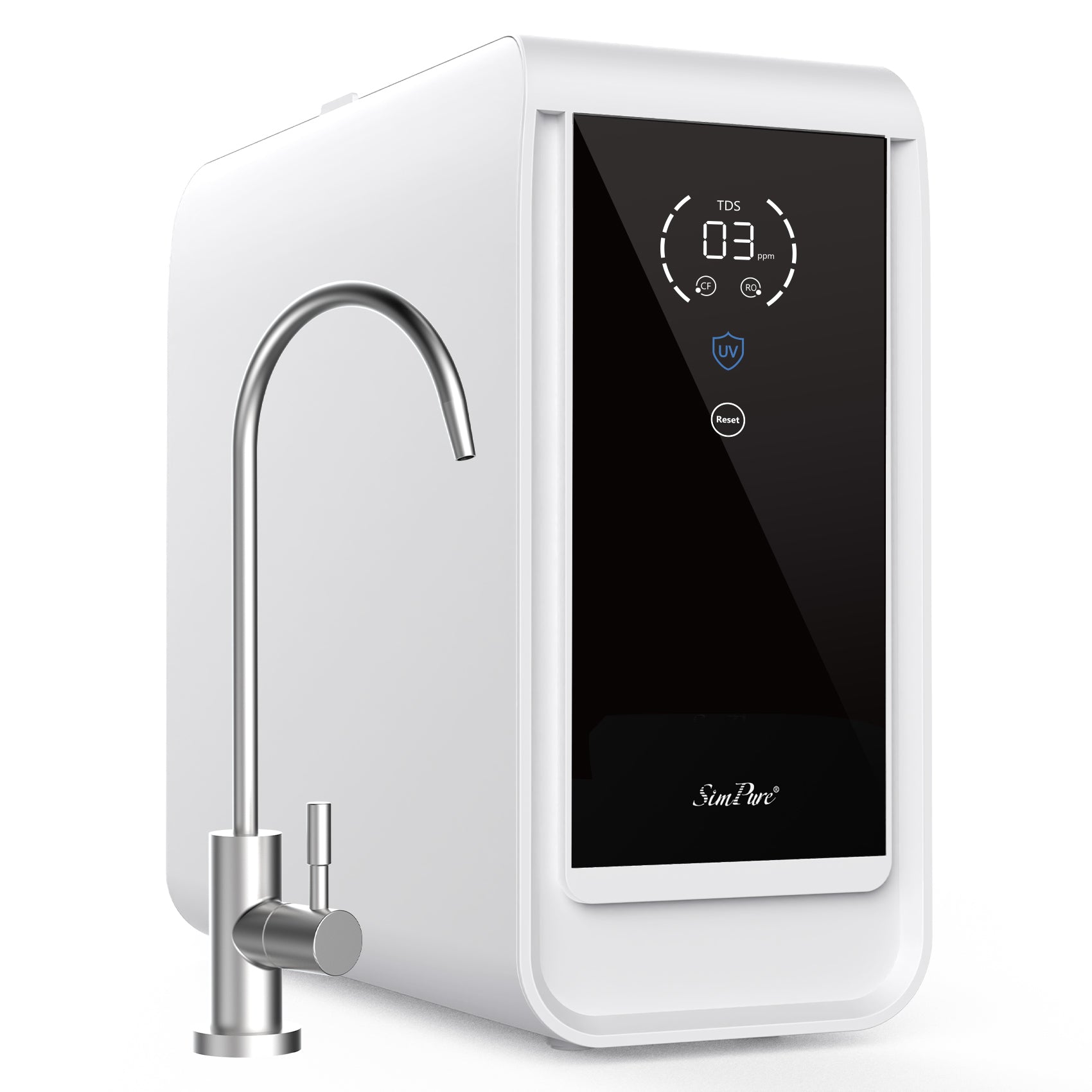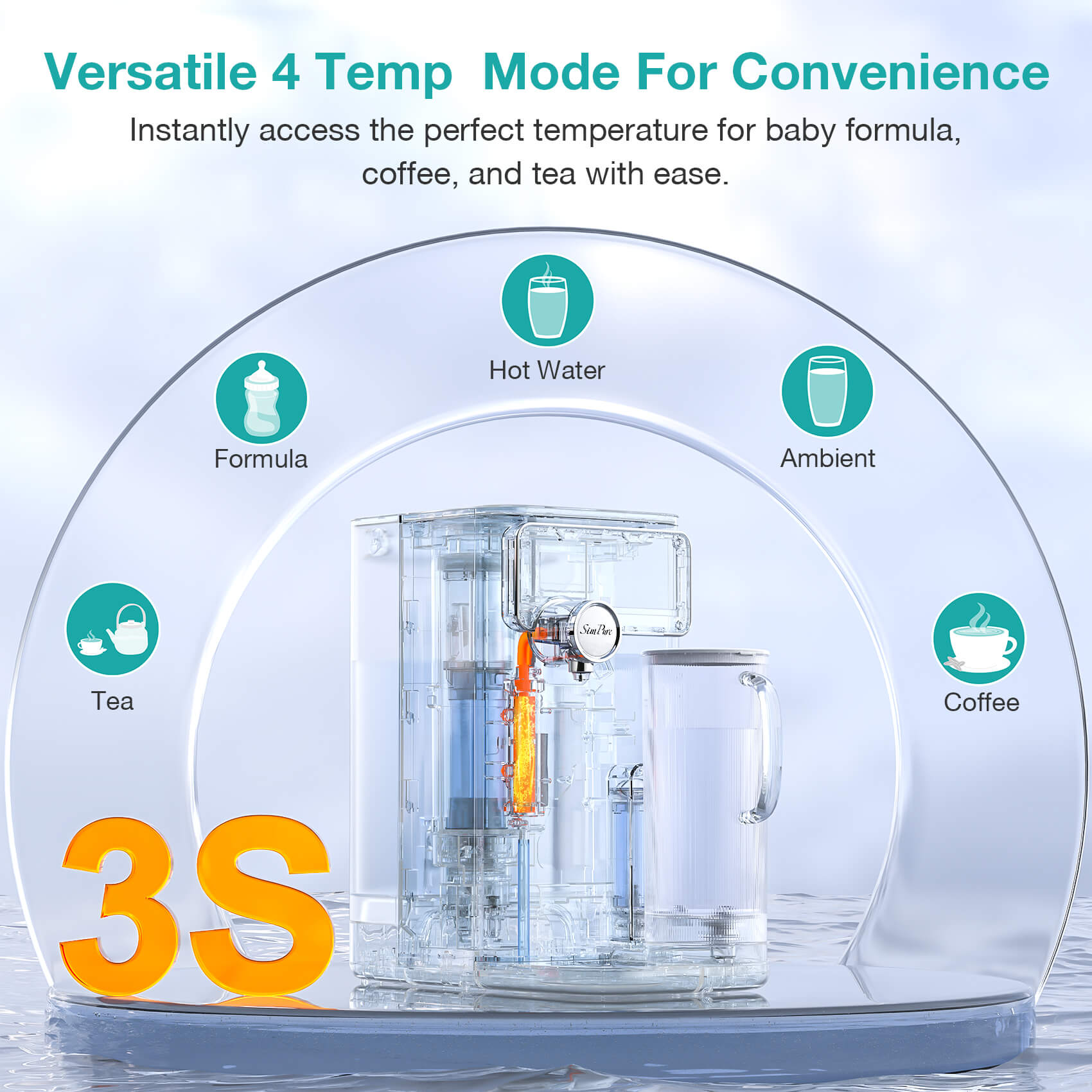Are you considering your water source options and wondering whether well water vs city water is the best fit for your needs? The decision is crucial, as the quality and characteristics of your water can impact everything from your health to your daily routines. In this article, we delve into the intriguing debate between city water vs well water, uncovering their unique advantages, disadvantages, and factors to consider. Discover the pros and cons of each, empowering yourself with the knowledge to make an informed choice for your and your family's hydration needs.
Well Water vs City Water: 6 Differences

Before answering the question is well water or city water better, let's take a look at the main differences between well water vs city water:
1. Source
Well water is obtained from underground sources, usually by drilling wells into aquifers. City water, also known as municipal water or tap water, comes from surface water bodies such as rivers, lakes or reservoirs.
2. Processing
Well water, usually requires minimal treatment, or may not be treated at all. It may be basic filtered to remove large particles or sediment. City water is comprehensively treated in the water treatment plant. This treatment usually includes steps such as coagulation, sedimentation, filtration, disinfection (e.g. chlorination), and sometimes additional processes such as advanced filtration or chemical treatment to remove contaminants and make them safe for consumption.
3. Regulations
Well water is generally not subject to the same regulatory oversight unless it is part of a larger public water system or is subject to local regulations. City water supplies are subject to strict regulations and quality standards enforced by local, state or national authorities. Water treatment plants must adhere to these standards and undergo regular testing to ensure compliance.
4. Accessibility
Well water is used by individual property owners who have their own wells. It is usually not part of a centralized distribution system. City water supplies are supplied through centralized systems managed by municipalities or water companies. It is distributed through a network of pipes and is easily accessed by homes, businesses and public facilities.
5. Cost
The cost of obtaining well water is borne by the individual property owner, including the initial cost of drilling and maintaining the well. The cost of city water supply is usually set by the municipality or water company, including treatment, distribution and infrastructure maintenance costs. It typically bills consumers based on usage.
6. Pollutants
Well water may contain naturally occurring heavy metals such as arsenic, lead, mercury or manganese, as well as bacterial, viral and parasitic contamination from various sources. For information on whether well water is safe, you can click on our blog is well water safe to drink to learn more. City water and well water are susceptible to different pollutants. City water is often treated with disinfectants such as chlorine, which reacts with organic matter and forms disinfection by-products such as trihalomethanes (THM). Additionally, industrial discharges, improper waste disposal, or accidental spills can introduce various chemical pollutants into rivers or lakes that are used as city water sources.
Well Water vs City Water: Is Well Water or City Water Better?

Is well water better than city water? To be honest, the comparison between city water and well water doesn't yield a clear winner. Determining whether city water vs well water is better depends on several factors that need to be considered based on individual circumstances and preferences. Here are some key factors to consider when choosing the most suitable type of water:
Water Quality
Assessing water quality is critical. City water are usually subject to a more stringent testing and treatment process to ensure the required levels of safety and quality. For more information, you can also read our blog how to know if your tap water is safe for more ways to test your tap water. However, well water quality will vary by location and geological characteristics. Well water must be tested regularly to ensure it meets safety standards and meets any specific treatment needs.
Accessibility and Convenience
City water can be easily obtained through a centralized system, providing a steady supply without the need to maintain individual wells. Well Water requires owning and maintaining a private well which includes drilling, maintenance, and regular testing duties.
Cost
Costs associated with well water include the initial installation of the well, ongoing maintenance, and any necessary water testing or treatment. City water supply costs usually involve a monthly water fee set by the municipality or water company. Comparing long-term costs and potential upfront investments is important to decision-making.
Regulations
City water supplies are subject to regulatory oversight and regularly monitored to meet safety and quality standards. Well water may not have the same level of regulatory requirements unless it is part of a public water system or is subject to local regulations. Knowledge of local regulations and supervisory responsibilities is important to ensure water safety.
Independence
Well water offers a degree of independence as it is not dependent on a centralized system or vulnerable to service outages. It may not be available in urban water infrastructure, but is advantageous in rural or remote areas where unreliable water supply infrastructure exists.
Environmental Impact
Treatment, pumping, and distribution of water in cities often require a lot of energy. Well water, on the other hand, comes directly from underground aquifers and therefore has less impact on the environment. It may be relevant to consider environmental impact and sustainability.
Quick Glance at Pros and Cons of Well Water vs City Water
Well Water: Pros & Cons
Pros:
1. Untreated natural water sources.
2. The water source is independent of the municipal system.
3. Lower cost.
4. Conducive to environmentally sustainable development.
Cons:
1. Too much reliance on electricity.
2. Greater pollution risk.
3. Lack of regulation.
4. Dependence on groundwater availability.
City Water: Pros & Cons
Pros:
1. Access to water is convenient and accessible.
2. Under the regulatory oversight system.
3. Available in case of emergency.
4. Consistent water quality.
Cons:
1. Contains chemical auxiliary chlorine.
2. Aging infrastructure.
3. High tolerance to external systems.
4. Higher cost.
Protecting Your Health: Purifying Both Well Water and City Water
Through the above reading, we know that well water vs city water have their own advantages and disadvantages, and these two different types of water may contain different types of pollutants, so they all have a common requirement: the need for supplementary purification. For maximum cleanliness, you can opt for our SimPure whole house water filter system solution. Our water filters provide an extra layer of defense against water contamination, whether it's well or tap water, putting you in control of your water quality.
In conclusion, is well water better than city water? The debate between well water vs city water comes down to personal preference, priorities, and circumstances. Whether you choose pure and simple well water or the convenience of tap water, remember that staying informed and taking action are key. On the other hand, we strongly recommend that you choose to install a water purifier at home to filter the water source to ensure that you and your family can enjoy safe, impurity-free, and satisfactory drinking water.



